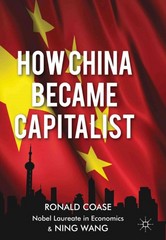Question
England and Scotland both produce scones and sweaters. Suppose that an English worker can produce 40 scones per hour or 1 sweater per hour. Suppose
England and Scotland both produce scones and sweaters. Suppose that an English worker can produce 40 scones per hour or 1 sweater per hour. Suppose that a Scottish worker can produce 20 scones per hour or 2 sweaters per hour.
workers have an absolute advantage in producing scones, and workers have an absolute advantage in producing sweaters.
workers have a comparative advantage in producing scones, and workers have a comparative advantage in producing sweaters.
If England and Scotland decide to trade, England will trade to Scotland.
If a Scottish worker could produce only 1 sweater per hour, Scotland gain from trade, and England gain from trade.
Step by Step Solution
There are 3 Steps involved in it
Step: 1

Get Instant Access to Expert-Tailored Solutions
See step-by-step solutions with expert insights and AI powered tools for academic success
Step: 2

Step: 3

Ace Your Homework with AI
Get the answers you need in no time with our AI-driven, step-by-step assistance
Get Started


